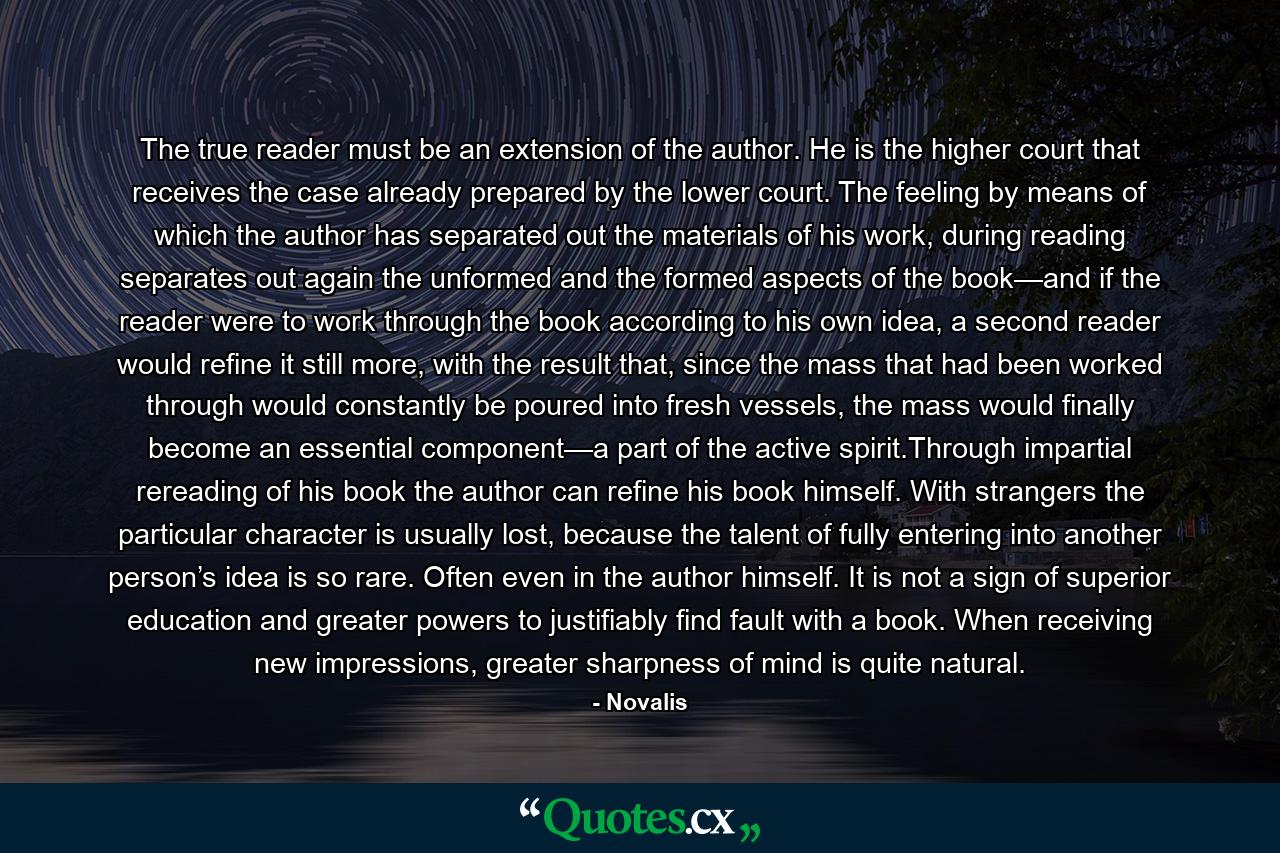The true reader must be an extension of the author. He is the higher court that receives the case already prepared by the lower court. The feeling by means of which the author has separated out the materials of his work, during reading separates out again the unformed and the formed aspects of the book—and if the reader were to work through the book according to his own idea, a second reader would refine it still more, with the result that, since the mass that had been worked through would constantly be poured into fresh vessels, the mass would finally become an essential component—a part of the active spirit.Through impartial rereading of his book the author can refine his book himself. With strangers the particular character is usually lost, because the talent of fully entering into another person’s idea is so rare. Often even in the author himself. It is not a sign of superior education and greater powers to justifiably find fault with a book. When receiving new impressions, greater sharpness of mind is quite natural.
